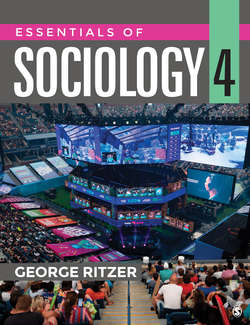Читать книгу Essentials of Sociology - George Ritzer - Страница 59
На сайте Литреса книга снята с продажи.
Critical Theories of Race and Racism
ОглавлениеCritical theories of race and racism argue that race continues to matter globally and that racism continues to have adverse effects on people of color (Delgado and Stefancic 2017; Slatton and Feagin 2019).
Critical theorists of race argue that “color-blindness,” or the notion that race no longer matters in determining an individual’s life chances and experiences, ignores the past and present realities facing racial minorities. Some suggest that color blindness is little more than a “new racism,” a smoke screen that allows whites to practice and perpetuate racial discrimination (Bonilla-Silva 2009, 2015). See the differing perceptions about employment opportunities illustrated in Figure 2.2, for example. The vast majority of white Americans believe that there is equal employment opportunity, but only a minority of black Americans subscribe to that view. The white belief in the smoke screen of equal opportunity serves to rationalize continued discrimination against blacks.
Description
Figure 2.2 Perceptions of Black vs. White Opportunities for Jobs, Housing, and Education
Source: Jeffery M. Jones (15 July 2016), “Americans’ Optimism About Blacks’ Opportunities Wanes.” Gallup. Retrieved from https://news.gallup.com/poll/193697/americans-optimism-blacks-opportunities-wanes.aspx.
Of particular importance to recent work in this area is the idea of intersectionality (Collins and Bilge 2016), which points to the fact that people are affected, often adversely, not only by their race but also by their gender, sexual orientation, class, age, and global location. The confluence, or intersection, of these various statuses and the inequality and oppression associated with combinations of them are what matter most. Not only are we unable to deal with race, gender, class, and so on separately; we also cannot gain an understanding of oppression by simply adding them together. For example, a poor black female lesbian faces a complex of problems different from, and perhaps more difficult to deal with, than the problems faced by a poor person or a black person or a woman or a lesbian.
Ask Yourself
Is your life affected by intersectionality? How many different statuses do you hold, and to which social and cultural groups do you belong?
